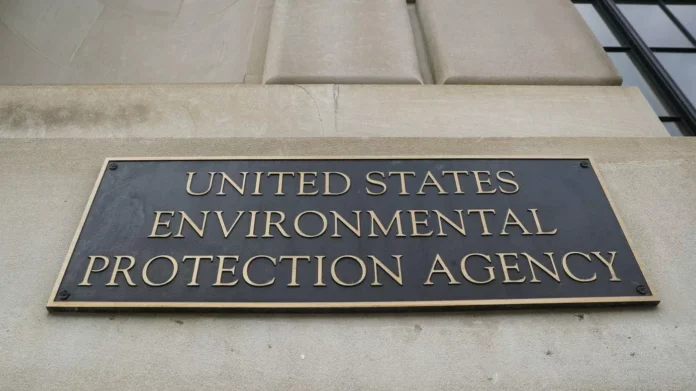President Trump’s pick for the head of the Environmental Protection Agency’s (EPA) office in charge of climate change and air pollution has sparked controversy with his recent comments on climate change. During his confirmation hearing on Wednesday, Aaron Szabo stated that the United States should “adapt to” rather than try to minimize the effects of climate change. This statement has raised concerns among environmentalists and lawmakers, who believe that it goes against the very purpose of the EPA.
Szabo’s comment came in response to a question from Senator Sheldon Whitehouse (D-R.I.), who asked about the key climate policies that the EPA should prioritize. In his response, Szabo stated that the U.S. should focus on adapting to the changing climate rather than trying to mitigate it. He also emphasized the importance of technological advancements in dealing with the impacts of climate change.
This statement has been met with criticism from environmental groups and Democrats, who argue that it goes against the EPA’s mission to protect human health and the environment. They believe that the U.S. should take a more proactive approach in reducing greenhouse gas emissions and addressing the root causes of climate change.
However, Szabo’s comments have also been met with support from some Republicans and industry groups, who have long argued against strict regulations on carbon emissions. They believe that the U.S. should focus on adapting to the changing climate rather than implementing costly measures to reduce emissions.
But what does it mean to “adapt to” climate change? Is it a viable solution, or is it simply a way to avoid taking action? These are questions that need to be addressed, especially as the effects of climate change become more apparent.
Adapting to climate change means preparing for and adjusting to the impacts of a changing climate. This can include measures like building seawalls to protect coastal cities from rising sea levels, developing drought-resistant crops, and implementing heat wave warning systems. While these measures are important, they do not address the root cause of climate change.
The reality is that climate change is happening, and it is primarily caused by human activities such as burning fossil fuels and deforestation. The U.S. is one of the largest contributors to greenhouse gas emissions, and as a global leader, it has a responsibility to take action to reduce its carbon footprint.
The EPA plays a crucial role in protecting the environment and public health, and it is essential that its leaders prioritize addressing climate change. This includes implementing policies and regulations that aim to reduce emissions and promote clean energy alternatives. By minimizing our carbon footprint, we can help slow down the effects of climate change and protect our planet for future generations.
Furthermore, adapting to climate change should not be seen as an alternative to mitigating it. Both approaches are necessary in addressing the issue effectively. While adapting to the impacts of climate change is important, it should not be used as an excuse to avoid taking action to reduce emissions.
In his confirmation hearing, Szabo also emphasized the role of technology in addressing climate change. And he is right. Technological advancements can play a significant role in reducing emissions and developing sustainable solutions. However, relying solely on technology is not a viable solution. We need to take a comprehensive approach that includes both technological advancements and policy changes.
In conclusion, President Trump’s pick for the head of the EPA’s office in charge of climate change and air pollution has sparked debate with his comments on adapting to climate change. While adapting to the impacts of climate change is essential, it should not be used as an excuse to avoid taking action to reduce emissions. The U.S. must prioritize addressing the root causes of climate change and implementing policies and regulations to reduce its carbon footprint. As a global leader, it is our responsibility to take action and protect our planet for future generations.

